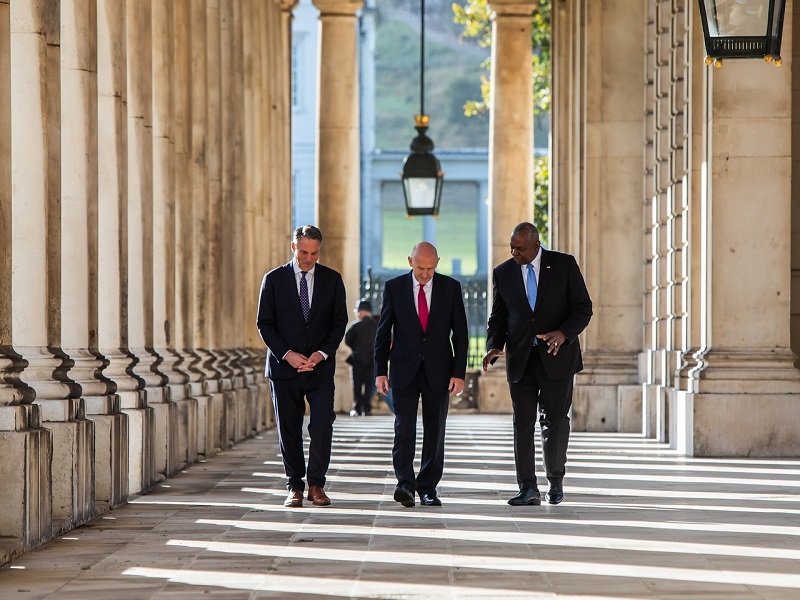Local technology companies Penten, Inovor Technologies and Advanced Design Technology have been named the Australian winners of the first-ever trilateral AUKUS innovation challenge.
All three firms, based in the ACT and South Australia, have been awarded $240,000 to develop electromagnetic spectrum (EMS) technologies that provide asymmetric advantage to Australian warfighters.
The other winners are Amiosec, Autonomous Devices, Roke Manor Research and the University of Liverpool, all from the United Kingdom, and United States-based Distributed Spectrum.

Defence minister Richard Marles announced the Australian winners on the sidelines of a meeting of AUKUS defence ministers in London on Thursday – the first AUKUS meeting to be held outside of the US.
The Advanced Strategic Capabilities Accelerator (ASCA) kicked off the challenge alongside the US Defense Innovation Unit and the UK’s Defence and Security Accelerator in March.
It is the first in a series of AUKUS Pillar II challenges agreed with the US and UK, with the three defence ministers also “endorsing plans for a robust two-year agenda” of collaboration between the three innovation units.
For the first challenge, ASCA identified five technologies as of interest to Australia: sensors, closed loop targeting, electronic attack, electromagnetic spectrum (EMS) access, and EMS deception and denial.
But it was also open to other technologies able to identify, locate and monitor targets, direct and engage the target using enabled weapons systems, and assess the attack effects, all using EMS.
Penten, Inovor Technologies and Advanced Design, which were chosen from more than 170 applications to the challenge, will now improve their technologies further through co-development with Defence.
When the challenge statement was released, ASCA said the best technological solutions from the challenge would also be made available to all three AUKUS partners.
ACT-based Penten, a provider of cyber and artificial intelligence technology, will participate in co-design workshops with Defence to deliver a pathway to demonstration of a full-spectrum electronic deception solution.
Penten’s product leader for Electronic Warfare Dr Nathan Johnson said the solution being worked on provides “hyper-realistic emulations of a range of battlefield capabilities which can be used by military commanders to generate asymmetric effects without the need for large numbers of specialists operators”.
“The ASCA work will extend our existing solutions to create a full-spectrum ED platform, further unlocking rapid and cost-effective deployments across modern battlefield environments,” he said.
Penten’s electronic deception technology has also won the UK component of the AUKUS innovation challenge, with Amiosec a long-standing partner of the company.
Inovor Technologies, a space and defence research company, and electronic warfare and cyber specialists Advanced Design Technology will also deliver solutions to ASCA. InnovationAus.com has contacted both companies for comment.
Commenting on the winner’s success on Thursday, Defence minister Richard Marles said the challenge demonstrates that “AUKUS is happening, and it is happening at pace”.
The three nations are developing classified artificial intelligence algorithms to process the “vast amounts of data which are picked up by our sonar buoys, which collectively will greatly enhance our decision-making advantage in the undersea domain,” he said.
“There is work which we are doing now, which is happening now, which is increasing our military capabilities, which is putting advantage into the warfighters’ hands,” Mr Marles added.
Do you know more? Contact James Riley via Email.

